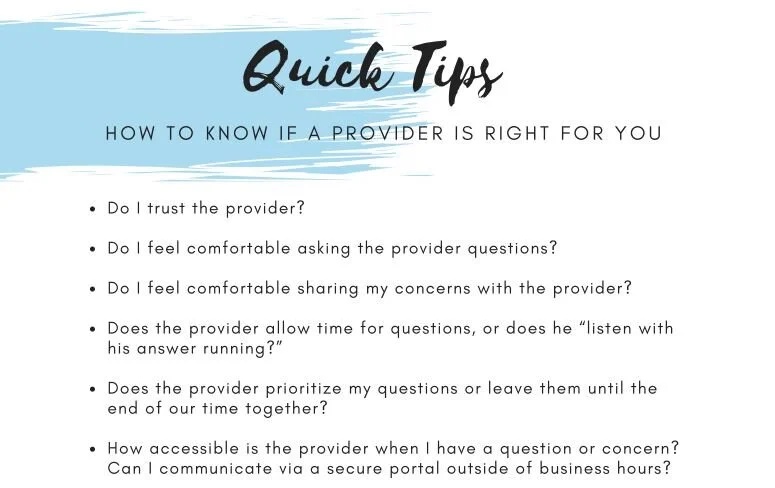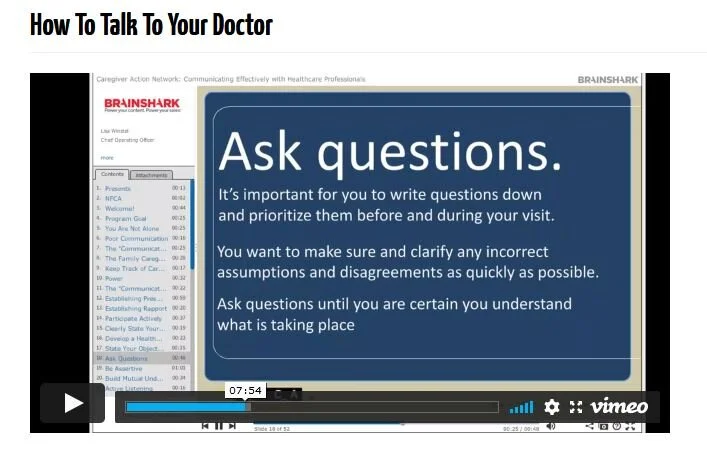talking with doctors / therapists
better communication
with doctors, therapists, and the rest of your child’s care team starts here.
When you have the right provider and set goals for your interactions, your time together can be less stressful and more productive.
how to know if a provider is right for you
Often times, the best providers for our children are those with the most knowledge and experience with a particular healthcare condition. Insurance or Medicaid coverage are also extremely important. But when two or more providers check those boxes, it can be helpful to consider the person with whom we might have the most productive relationship over time.
We all have different needs. We all like to communicate in different ways. The important thing is to find a provider who can meet us where we are and partner with us to deliver the best care possible for our children.
Not sure if a provider is right for you and your child? Our Quick Tips sheet has a list of 14 key questions to consider.
making the most of appointments
We all want to make the most of the limited time we have doctors and therapists. Family Voices has created a simple tool to help us get the most out of office visits. It has tips on:
Searching for providers that meet your needs
Trusting your instincts
Not being intimidated
Asking for additional reading
Asking for a written care plan
Asking for help financing care
Finding ways that other family members can participate
Learning from other parents
Seeking second opinions
And more
how to talk to your doctor
This comprehensive video from the Courageous Parents Network is full of tips for preparing for doctor’s visits, communicating effectively with doctors and nurses, and advocating for our children.
why a health map may help
Most hospital systems have Electric Medical Records (EMRs) that store our children’s medications, visit summaries, lab values, and more. These are terrific resources! But I can’t tell you how many questions I’ve been able to ask - and answer - based on the simple Health Map that I created for my daughter at home.
I created my Health Map in PowerPoint. You may prefer to make yours in a Word document, using a heath app on your phone, or even on notebook paper. However you choose to do it, here are some examples of what you can include.
Height and weight trends
Important lab values
Results of diagnostic procedures
A timeline of illnesses
Notes from doctors visits
Questions for future visits





